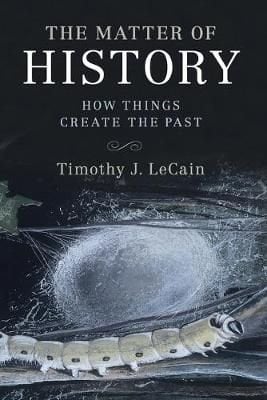New insights into the microbiome, epigenetics, and cognition are radically challenging our very idea of what it means to be ‘human’, while an explosion of neo-materialist thinking in the humanities has fostered a renewed appreciation of the formative powers of a dynamic material environment. The Matter of History brings these scientific and humanistic ideas together to develop a bold, new post-anthropocentric understanding of the past, one that reveals how powerful organisms and things help to create humans in all their dimensions, biological, social, and cultural. Timothy J. LeCain combines cutting-edge theory and detailed empirical analysis to explain the extraordinary late-nineteenth century convergence between the United States and Japan at the pivotal moment when both were emerging as global superpowers. Illustrating the power of a deeply material social and cultural history, The Matter of History argues that three powerful things - cattle, silkworms, and copper - helped to drive these previously diverse nations towards a global ‘Great Convergence’.












